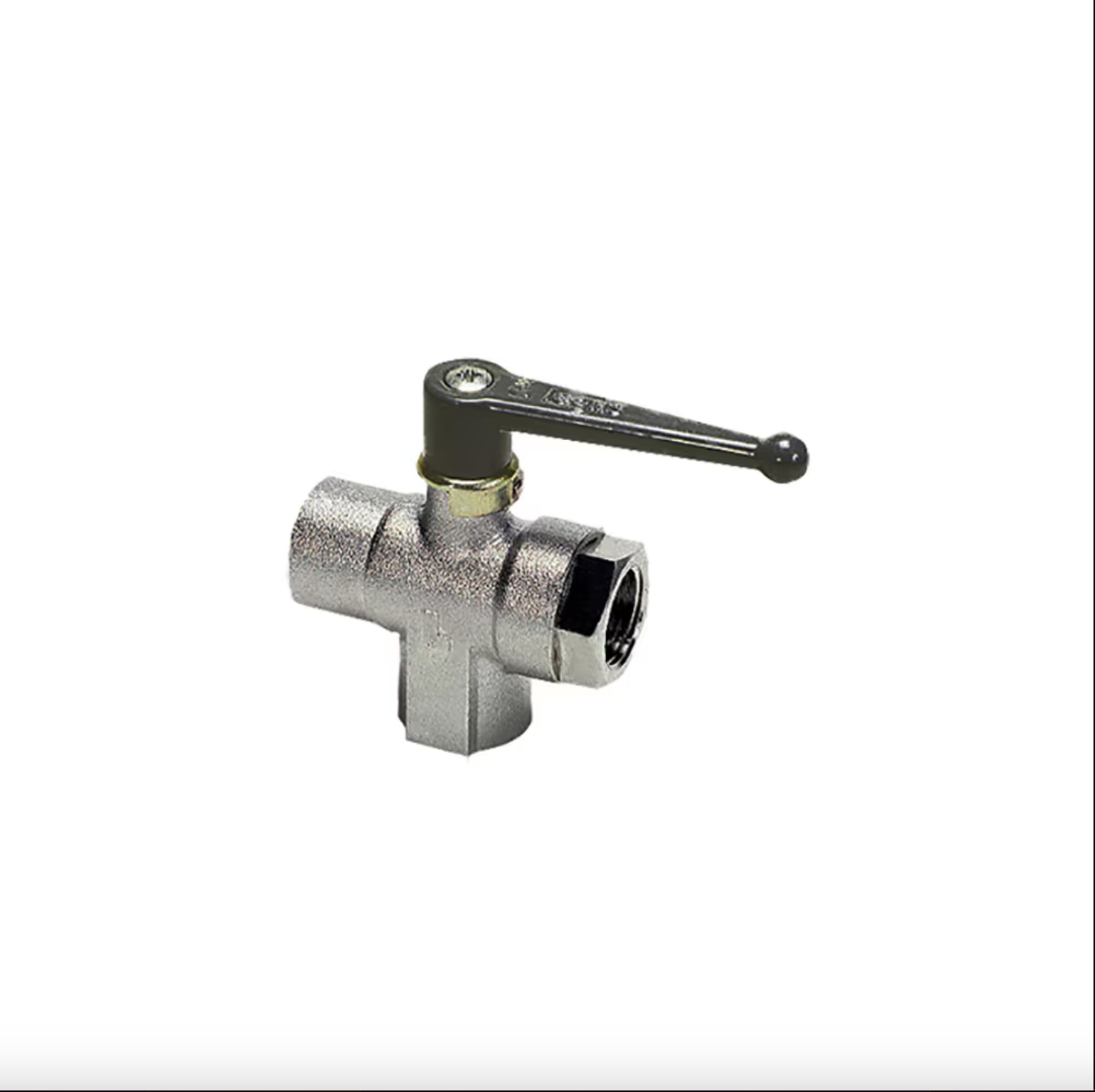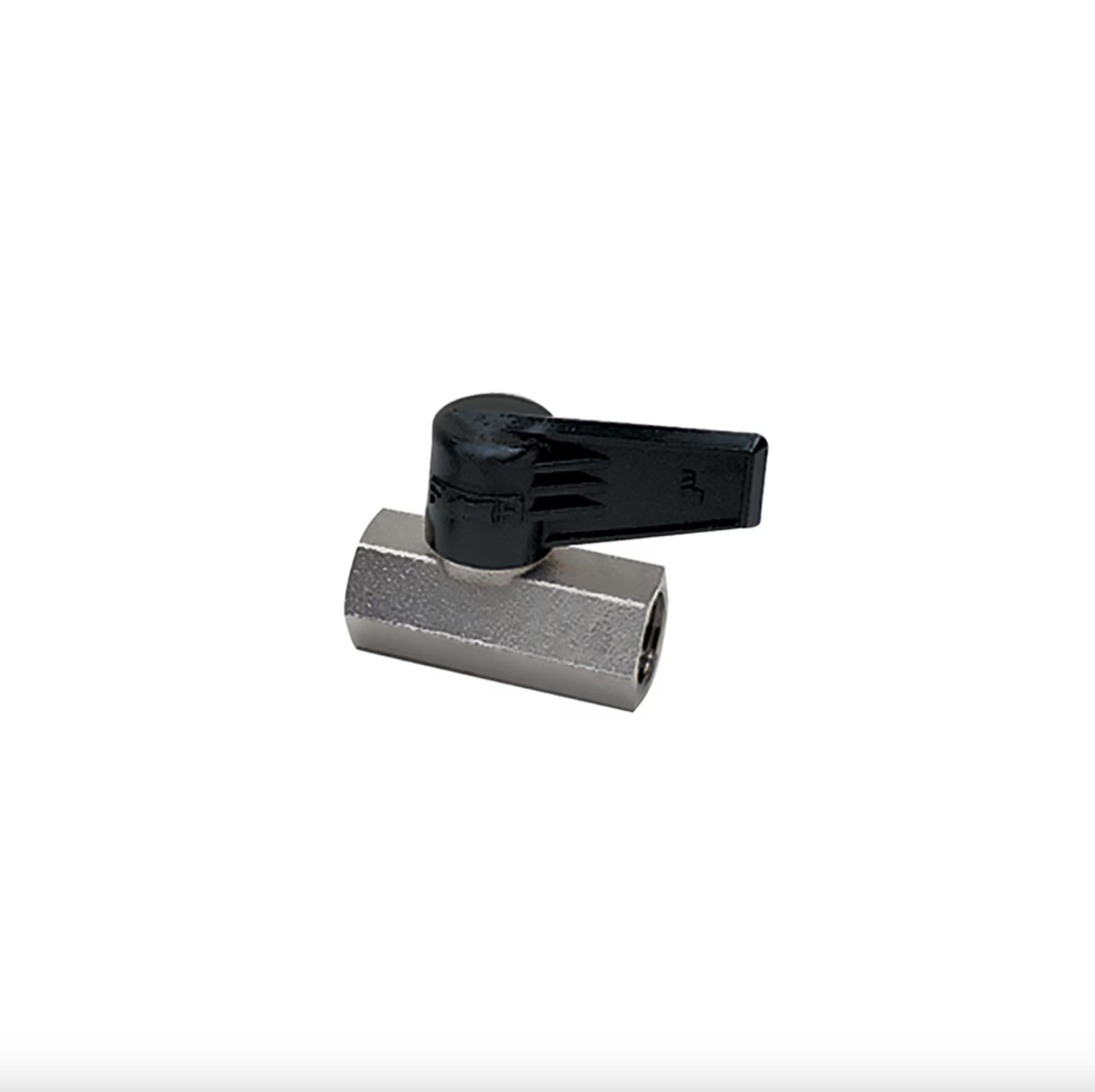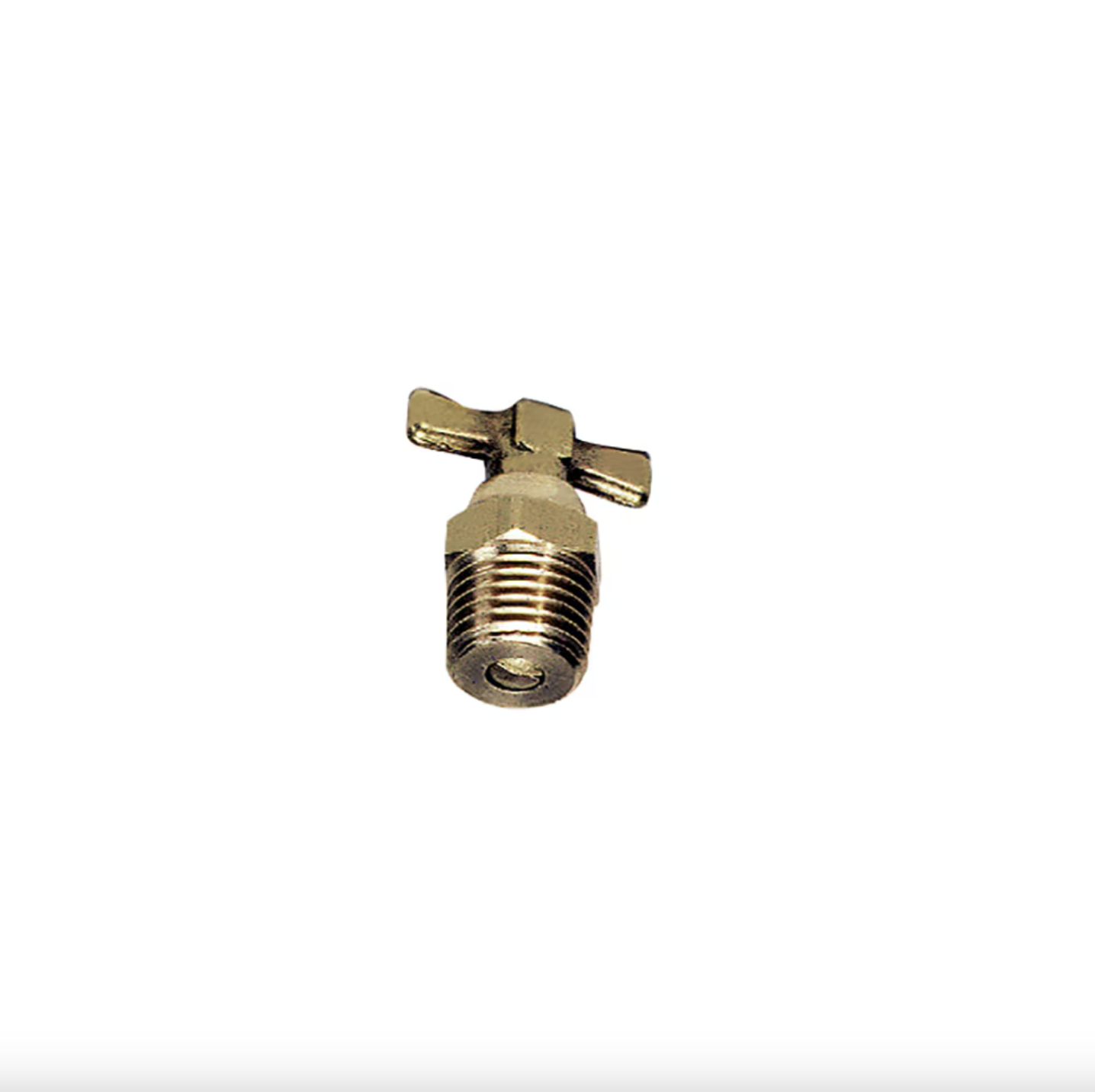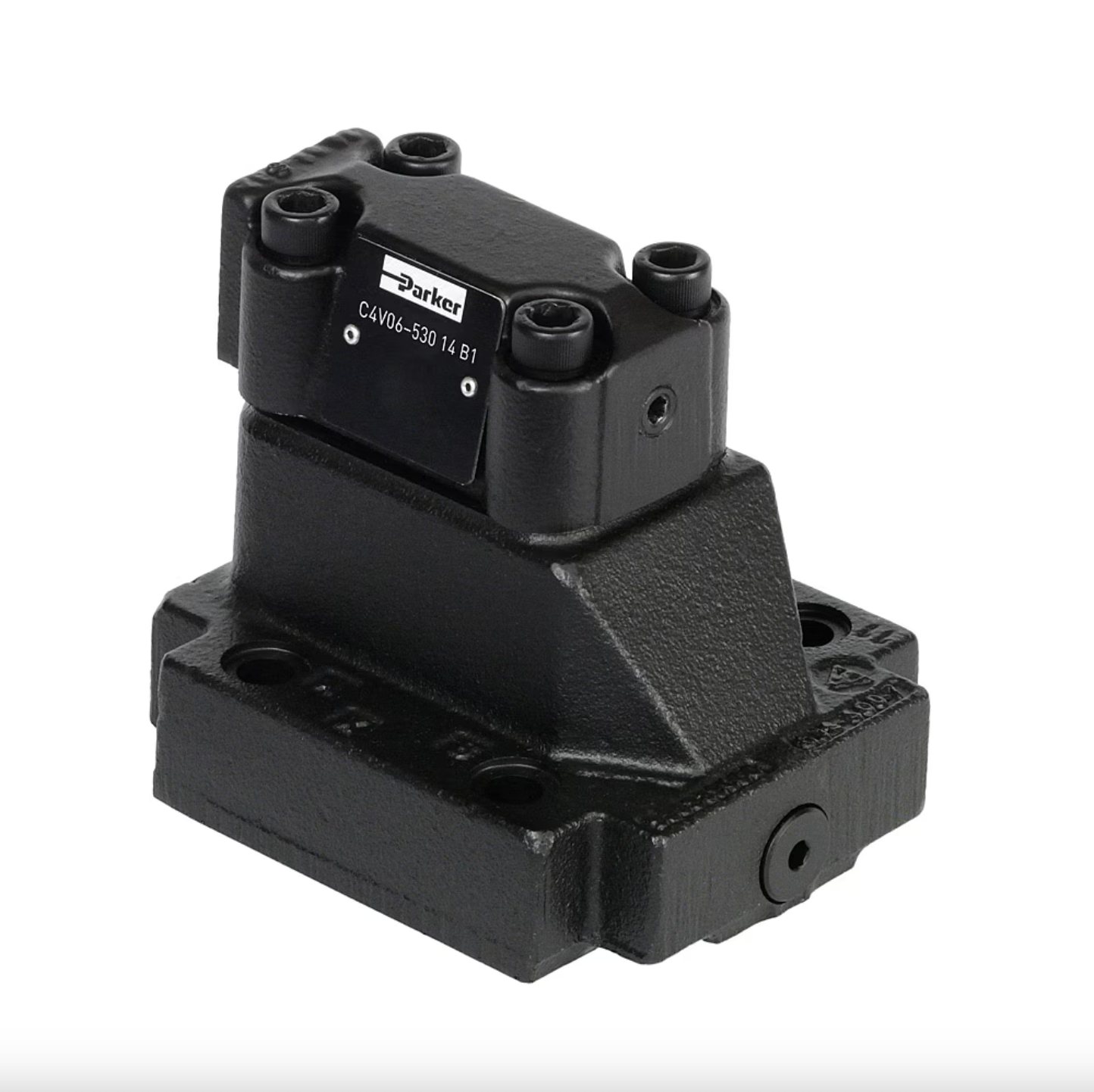
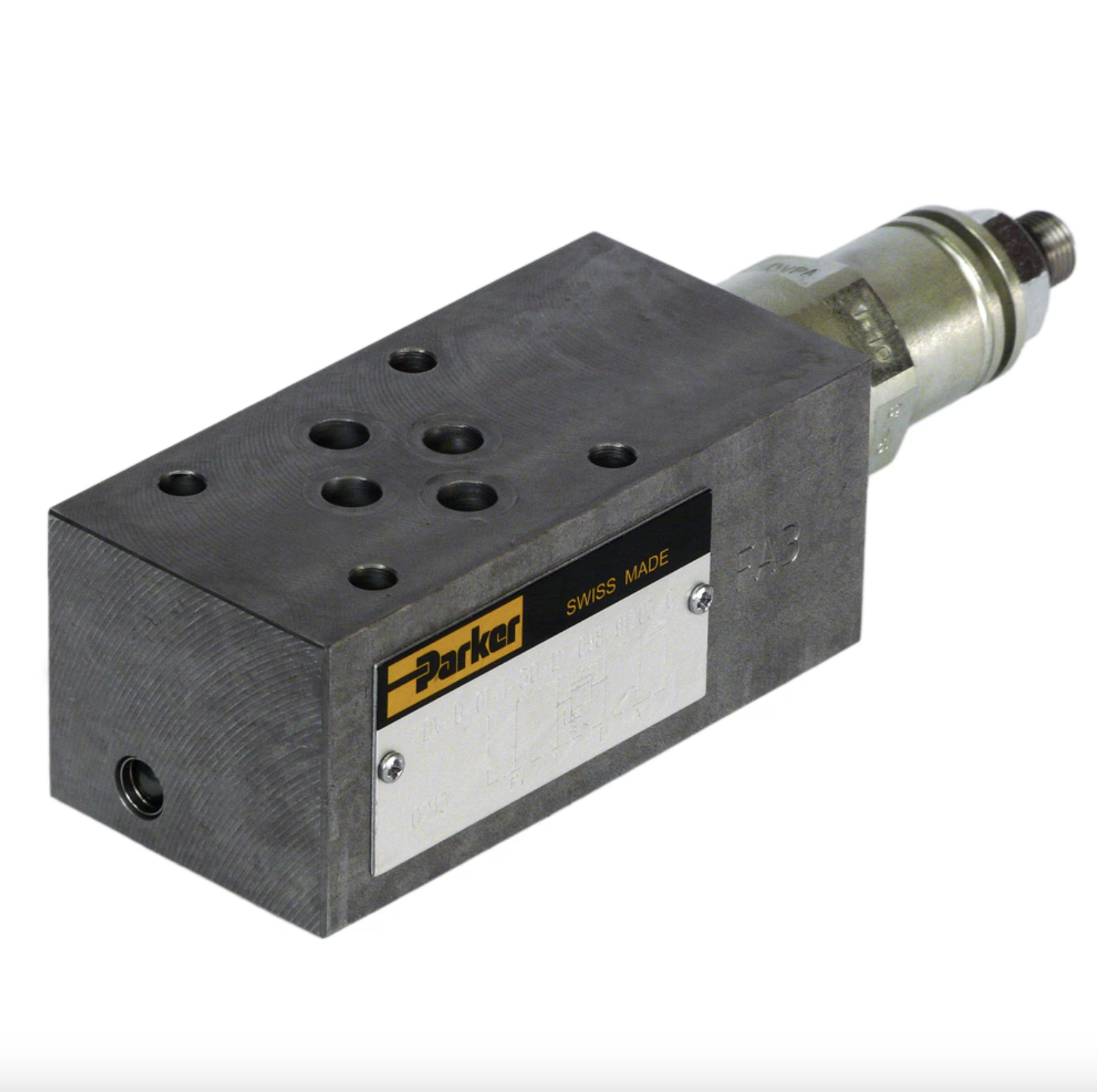
As a mature component of Parker's modular sandwich valve system, the direct operated pressure reducing valves series PRDM feature fast response and minimum hysteresis for continuous high productivity. They regulate pressure in one area of a hydraulic circuit at a predetermined level below normal system pressure. Additionally, an integral pressure relieving function for the secondary reduced pressure circuit is incorporated into the design.
Markets:
• Industrial
• Machine tools
• Rubber & tire processing
Features/Benefits:
• Extremely versatile due to a wide pressure range
• Fine-tuned pressure stages - tailor-made for precise pressure regulation
• Fast response - ensures optimized operation
• Direct operated, cushioned piston design - provides low leakage and minimum hysteresis
• Short delivery time for most variations - no warehousing necessary
• Sizes: PRDM2 - NG06 (CETOP 03), PRDM3 - NG10 (CETOP 05)
• 3-way design for pressure relieving of the secondary side
• Reduced pressure in the 'P', 'A' or 'B' port
• Pressure settings: 25, 70, 160, 210, 350 bar for PRDM2; 19, 50, 100, 150, 210 bar for PRDM3
• Gauge port
Applications:
• Suitable for general hydraulic applications
• Machine tools
• Tire presses
Function:
PRDM valves are "normally open" devices that allow fluid to flow through the controlled port during their non-actuated or "at rest" condition. When downstream pressure exceeds the value set by the spring force, the control piston moves off its seat, closing off the flow path and thus reducing the fluid passing through from the main system. The cushioned piston modulates to maintain the preset pressure in this branch of the hydraulic circuit. If, due to external forces, the pressure continues to rise in this branch circuit, the piston will keep moving against the spring force allowing fluid to be drained to the tank, thereby limiting maximum pressure to the valve's setting.

